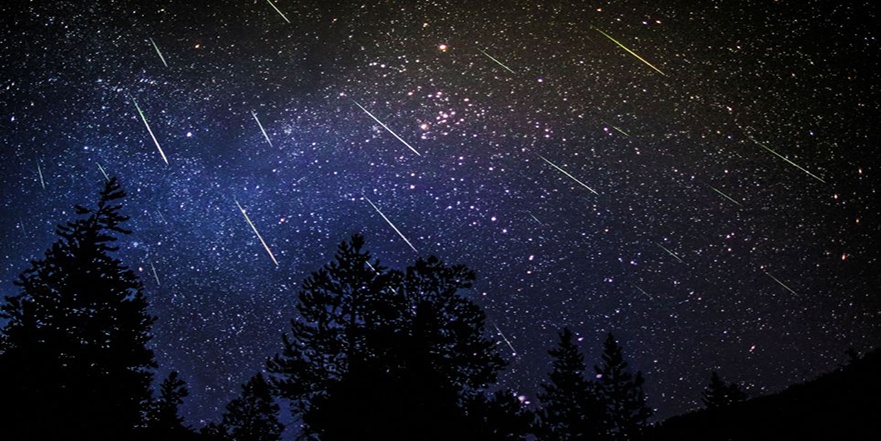Perseid meteor shower 2020
- Posted by OCastronomy
- On August 11, 2020
- 0 Comments
- International Meteor Organization, meteor shower, meteors, Northern Hemisphere, Orange County CA, Perseid meteor shower, Perseid meteor shower 2020, Perseids, Perseus, Swift-Tuttle
Perseid meteor shower 2020 will peak between August 11th and 12th
 The Perseids are named after the constellation Perseus and are made of space debris from comet Swift-Tuttle. The Perseids can be found in the north-eastern part of the sky. It is usually the most sought after meteor shower to watch because, at its peak, one can see 60 to 100 meteors in an hour. In the Northern Hemisphere, the Perseids can be seen between the northeast part of the sky and the zenith (the point in the sky directly above you). You can easily see a shooting star with the naked eye so there will be no need for binoculars or a telescope just look straight up.
The Perseids are named after the constellation Perseus and are made of space debris from comet Swift-Tuttle. The Perseids can be found in the north-eastern part of the sky. It is usually the most sought after meteor shower to watch because, at its peak, one can see 60 to 100 meteors in an hour. In the Northern Hemisphere, the Perseids can be seen between the northeast part of the sky and the zenith (the point in the sky directly above you). You can easily see a shooting star with the naked eye so there will be no need for binoculars or a telescope just look straight up.
Below shows the exact directions of the Perseids from Orange County Ca, for other locations in the Northern Hemisphere remember to look towards the north-east.
| Perseids meteor shower (Night between August 11 and August 12) | ||
|---|---|---|
| Time | Azimuth/Direction | Altitude |
| Tue 8:00 pm | 11° |
3.5° |
| Tue 9:00 pm | 18° |
6.5° |
| Tue 10:00 pm | 25° |
11.0° |
| Tue 11:00 pm | 30° |
16.7° |
| Wed 12:00 midnight | 35° |
23.4° |
| Wed 1:00 am | 38° |
30.8° |
| Wed 2:00 am | 39° |
38.6° |
| Wed 3:00 am | 39° |
46.5° |
| Wed 4:00 am | 35° |
54.1° |
| Wed 5:00 am | 27° |
60.5° |
| Wed 6:00 am | 12° |
64.7° |
Since a waning crescent moon will be occurring on the 11th this will cause a slightly reduced visibility for observers to watch the Perseid Meteor Shower in 2020, but remember the best time to view the meteor shower is right before dawn. Be sure to no use flashlights or look at your phone for a few minutes to let your eyes adjust to the night’s sky. To find a good location to view this event in Orange County California be sure to check out OC Star Spots on our website and Android App.
For a full 2018 Meteor Shower Calendar visit the International Meteor Organization

